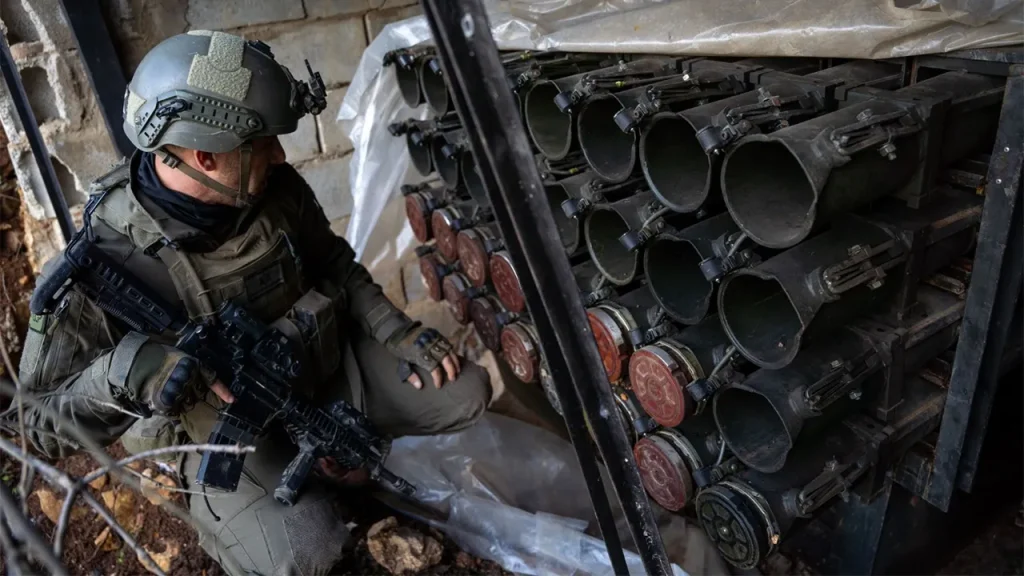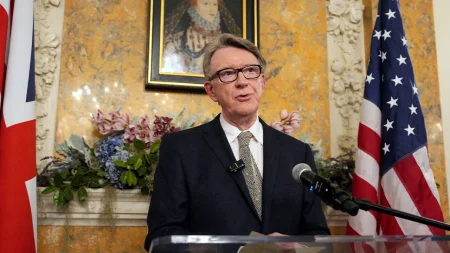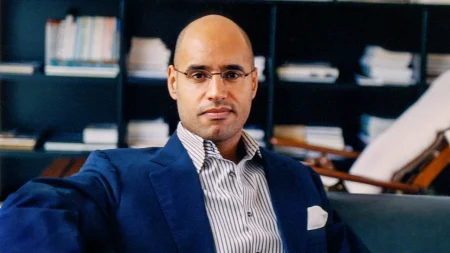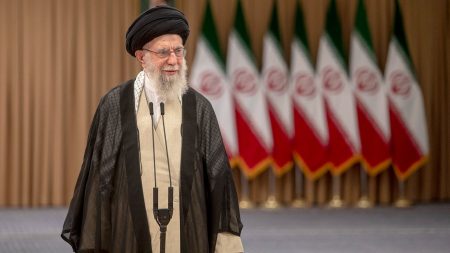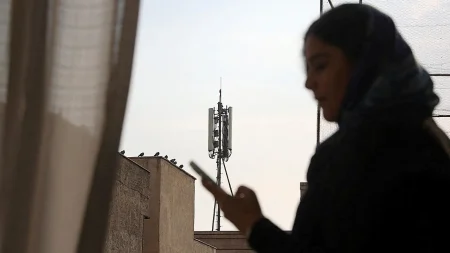The Israel Defense Forces (IDF) announced on Saturday the discovery and subsequent destruction of a substantial underground tunnel system in southern Lebanon, attributed to Hezbollah’s elite Radwan Forces. The tunnel, exceeding 300 feet in length, was identified during ongoing IDF operations in the region and was found to contain a cache of weaponry, including rifles, machine guns, anti-tank missiles, and sophisticated observation equipment. The IDF’s Yahalom Unit, specializing in subterranean warfare, played a crucial role in securing and clearing the tunnel of explosives and other hazards before its demolition. The discovery underscores the persistent threat posed by Hezbollah and its ongoing efforts to maintain operational capabilities along the border with Israel.
The IDF’s operation unearthed not only the tunnel itself but also a network of interconnected infrastructure. Adjacent to the tunnel, the IDF located an arsenal of anti-tank missiles and heavy machine gun emplacements strategically positioned to target Israeli military positions. Further investigation revealed that the tunnel system linked to a Hezbollah command center, which housed rockets previously employed in attacks against Israel during the recent conflict, along with a substantial quantity of explosives. The discovery and dismantling of this network significantly disrupts Hezbollah’s operational capabilities, removing a potential launchpad for future attacks and hindering their ability to quickly mobilize forces and weaponry in the border region.
The IDF’s operation in southern Lebanon comes amidst heightened tensions and recent calls by the United Nations Interim Force in Lebanon (UNIFIL) for Israel to withdraw its forces from the area. UNIFIL argues that Israel’s continued presence violates the terms of the November 27 ceasefire agreement with Hezbollah, brokered by the United States. The ceasefire, intended to de-escalate the year-long conflict, stipulates a phased Israeli withdrawal from southern Lebanon and the relocation of Hezbollah fighters north of the Litani River, mirroring the terms of the 2006 UN Security Council Resolution 1701.
UNIFIL’s criticisms extend beyond Israel’s continued military presence, encompassing accusations of destruction of civilian infrastructure, including residential areas, farmland, and other essential facilities in southern Lebanon. The peacekeeping force emphasizes the importance of a timely Israeli withdrawal and the subsequent deployment of the Lebanese Armed Forces in the vacated areas, facilitating the full implementation of Resolution 1701 as a pathway towards lasting peace in the region. The IDF has acknowledged UNIFIL’s concerns and is reportedly investigating the allegations, though it has yet to offer a detailed response.
The ceasefire agreement grants Israel a 60-day window to complete its withdrawal from southern Lebanon, with both sides prohibited from initiating offensive operations during this period. However, the discovery of the Hezbollah tunnel and the subsequent IDF operation raise questions about the interpretation and implementation of the ceasefire terms. While the IDF maintains that its actions are necessary to maintain security and prevent further Hezbollah aggression, UNIFIL and the Lebanese government express concerns about the potential for escalating tensions and the need for adherence to the agreed-upon withdrawal timeline.
The Lebanese Armed Forces is coordinating with UNIFIL and the ceasefire monitoring committee to address Israel’s ongoing operations in southern Lebanon. UNIFIL continues its monitoring activities south of the Litani River to ensure the demilitarized zone remains free of unauthorized armed personnel and weaponry, with exceptions made for legitimate Lebanese government forces and UNIFIL peacekeepers. The situation remains delicate, highlighting the challenges of maintaining a fragile peace in a region fraught with long-standing tensions and the potential for renewed conflict. The international community continues to call for restraint from all parties and a commitment to upholding the ceasefire agreement to avoid further escalation.





